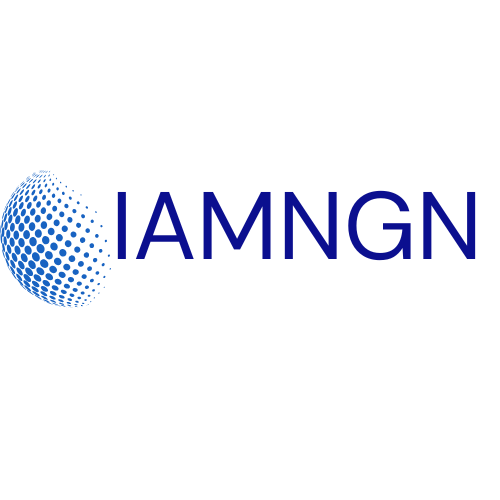Real Estate Blockchain: Revolutionizing Property Transactions for a Transparent Future

In a world where buying a house can feel like navigating a maze blindfolded, real estate blockchain swoops in like a superhero with a cape made of smart contracts. Imagine a future where property transactions are as smooth as butter on a hot pancake. With blockchain technology, transparency and security are no longer just buzzwords; they’re the foundation of a revolution in real estate.
Gone are the days of endless paperwork and mysterious middlemen. By harnessing the power of blockchain, buyers and sellers can connect directly, cutting out the hassle and the hefty fees. This isn’t just a tech trend; it’s a game-changer that’s rewriting the rules of property ownership. Get ready to explore how real estate blockchain is transforming the industry, one digital transaction at a time.
Real Estate Blockchain
Real estate blockchain represents a significant advancement in property transactions. This technology decentralizes data storage, leading to improved security and efficiency. Increased transparency stands as a primary benefit, allowing parties to track ownership history seamlessly.
Blockchain networks eliminate excessive paperwork traditionally associated with real estate deals. Changes in property records become more straightforward using this digital ledger. Enhanced accountability results from each transaction being recorded and immutable.
Smart contracts play a crucial role, automating processes and reducing the need for intermediaries. Such contracts execute terms automatically, ensuring compliance from both buyers and sellers. Upfront costs reduce significantly through decreased reliance on traditional legal frameworks.
Furthermore, real estate blockchain fosters faster transactions. Closing times shorten as parties interact directly through a secure platform. Enhanced trust in the transaction process emerges from the transparency blockchain offers.
Globalization of the property market benefits from this technology as well. Investors can access properties worldwide without geographical barriers. This opens new opportunities for international investment, making real estate more accessible.
Adoption of real estate blockchain continues to grow among various stakeholders. Developers, agents, and buyers see its potential in transforming property ownership. Recognizing the evolution in the industry, many are eager to embrace this innovation.
Real estate blockchain transforms how property transactions occur, promoting a more transparent and efficient process.
Key Benefits of Real Estate Blockchain

Real estate blockchain technology offers significant advantages in property transactions, enhancing the overall experience for all parties involved.
Enhanced Transparency
Enhanced transparency is a fundamental benefit of real estate blockchain. Buyers and sellers access complete ownership histories easily, which fosters trust. Every transaction records in a digital ledger, making it resistant to tampering or unauthorized changes. This visibility minimizes the chance of fraud, benefiting all parties. Stakeholders can verify documents and contracts in real time, accelerating decision-making. Transparency also aids regulatory compliance, as authorities can track transactions effortlessly. In turn, this openness nurtures confidence among investors, buyers, and sellers alike.
Improved Security
Improved security emerges as a critical advantage of utilizing blockchain in real estate. Encrypting data ensures that sensitive information remains protected from unauthorized access. Each transaction involves a unique cryptographic signature, making forgery practically impossible. Smart contracts automatically execute conditions, eliminating human error and potential disputes. Furthermore, decentralized data storage increases resilience against cyberattacks, safeguarding users’ investments. Stakeholders enjoy peace of mind, knowing their property records maintain integrity throughout their lifecycle. This robust security system ultimately bolsters market stability and attracts more investors.
Challenges Facing Real Estate Blockchain
Several challenges hinder the widespread adoption of blockchain technology in real estate. These obstacles involve regulatory hurdles and technical limitations that require careful navigation.
Regulatory Hurdles
Regulatory compliance constitutes a significant challenge for real estate blockchain. Different jurisdictions impose varying regulations, complicating the establishment of a unified framework. Real estate transactions often require adherence to local laws, including property tax regulations and disclosure requirements. Blockchain’s decentralized nature creates ambiguity regarding jurisdiction and accountability. Furthermore, regulatory bodies remain cautious about embracing new technologies, sometimes lacking guidelines for blockchain implementation. Obtaining necessary approvals can delay projects and limit innovation. Stakeholders must collaborate with regulators to create adaptive frameworks while ensuring consumer protection and transparency.
Technical Limitations
Technical limitations present another barrier to the integration of blockchain in real estate. Scalability issues affect transaction speed and efficiency, especially during peak demand periods. Many existing blockchain platforms struggle to handle high volumes, leading to slow processing times. Moreover, interoperability among different blockchain systems remains a challenge, creating fragmentation in the market. Stakeholders may face difficulties when attempting to exchange data across platforms. User experience also plays a vital role; complex interfaces can deter non-technical users from engaging with blockchain solutions. Addressing these challenges requires ongoing technical advancements and user-centric design, enabling seamless integration into the real estate sector.
Current Applications of Real Estate Blockchain
Real estate blockchain technology finds applications across various facets of the property market. Property transactions benefit the most through enhanced security and transparency, enabling seamless verification of ownership and transaction history. Smart contracts facilitate faster and more efficient transactions, eliminating the need for intermediaries.
Developers use blockchain to streamline the property listing process. They can record all relevant property data on a secure and transparent ledger, providing potential buyers with easy access to information. Investors utilize blockchain to access global real estate markets, expanding their portfolio opportunities. Direct transactions between buyers and sellers reduce costs significantly, further incentivizing investment.
Also, title companies leverage blockchain for more accurate and efficient record-keeping. By storing ownership records securely and transparently, they minimize errors and streamline the title transfer process. Compliance with regulations improves through real-time updates of ownership histories, ensuring that all transactions align with legal standards.
In the realm of property financing, blockchain facilitates peer-to-peer lending and fractional ownership models. With peer-to-peer platforms, individuals can invest in properties collectively, democratizing access to real estate investments. Fractional ownership allows multiple investors to own shares of a property, making it possible for more people to invest with smaller capital.
Support for property management exists with blockchain applications automating tasks like rent collection and maintenance requests. Automated smart contracts handle these chores, reducing administrative burdens for property managers. Innovative solutions continue to emerge, demonstrating how real estate blockchain enhances operational efficiency and investor portfolios.
Future Trends in Real Estate Blockchain
Innovations in real estate blockchain are set to shape the industry landscape significantly. Emerging technologies will enhance user experience, making platforms easier to navigate for non-technical users. Increased adoption of artificial intelligence combined with blockchain will further automate property transactions and streamline processes.
Integration of advanced analytics into blockchain will provide deeper insights into market trends. These insights could help investors make informed decisions based on aggregate data from decentralized networks. A rise in educational initiatives on blockchain technology will enhance understanding among potential users, boosting overall market confidence.
Decentralized finance (DeFi) applications are poised to revolutionize property financing. Investors are exploring options like fractional ownership models, allowing multiple individuals to invest in a property. This trend democratizes access to real estate markets, catering to a broader audience eager to participate.
Regulatory bodies are expected to create clearer frameworks that support blockchain transactions. Proactive engagement from real estate stakeholders will ensure compliance with evolving laws, facilitating smoother integration of blockchain. Progressive collaboration among industry players will accelerate innovation, driving the adoption of blockchain solutions.
Enhanced interoperability solutions are on the horizon to address compatibility challenges among various blockchain platforms. Improved scalability will support faster transaction processing, accommodating increased demand without compromising security. Overall, the future of real estate blockchain promises significant efficiency gains, improved transparency, and a more accessible investment landscape.
Conclusion
Real estate blockchain is poised to redefine property transactions by enhancing transparency and security. Its ability to streamline processes and reduce costs offers a compelling alternative to traditional methods. As the industry embraces this technology, it opens doors to global investment opportunities and fosters a more efficient marketplace.
While challenges remain in regulatory compliance and technical integration, ongoing advancements promise to address these hurdles. The future landscape of real estate is likely to be shaped by innovations that enhance user experience and accessibility. With the potential for significant efficiency gains, real estate blockchain stands to transform the way individuals and businesses engage with property ownership.



